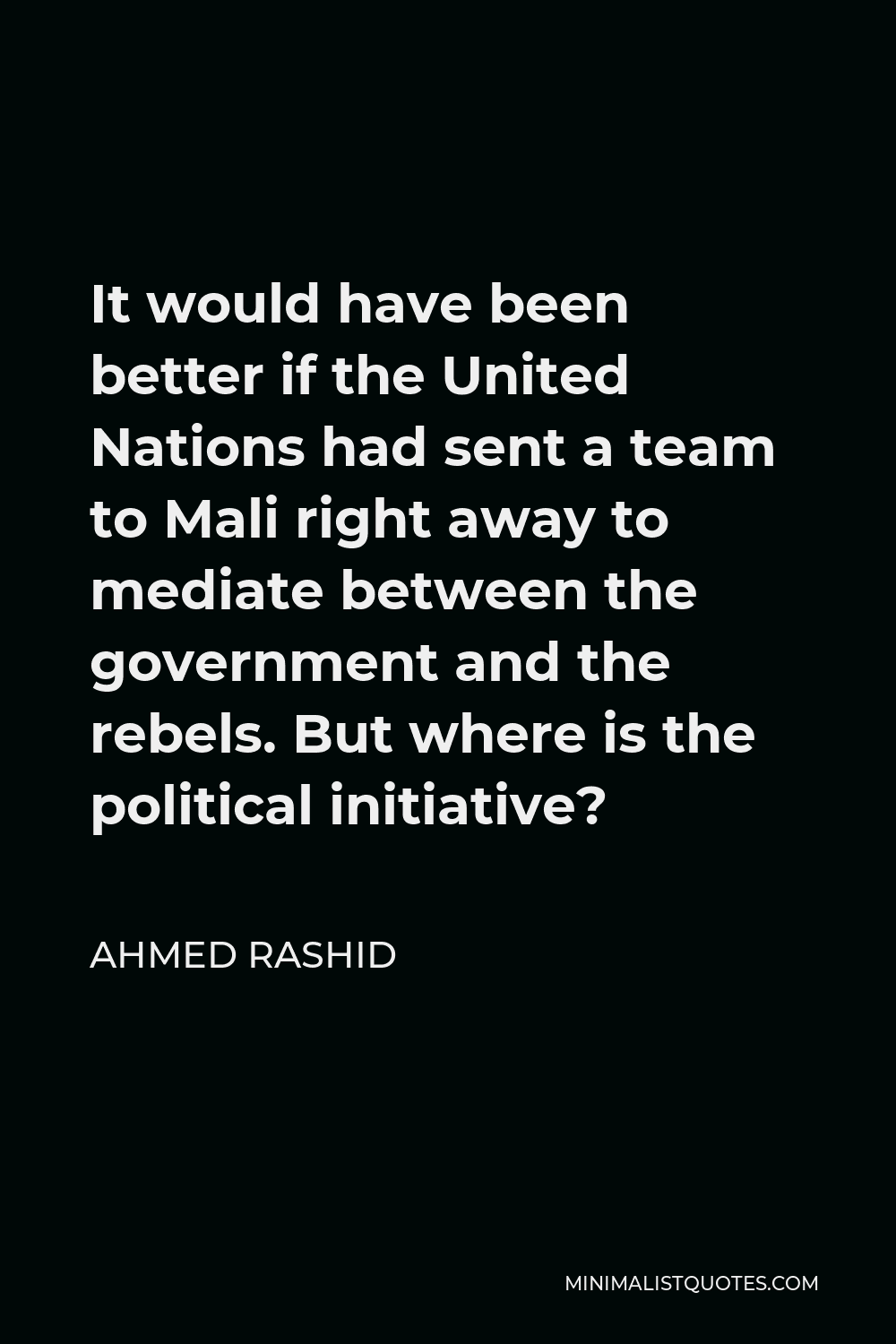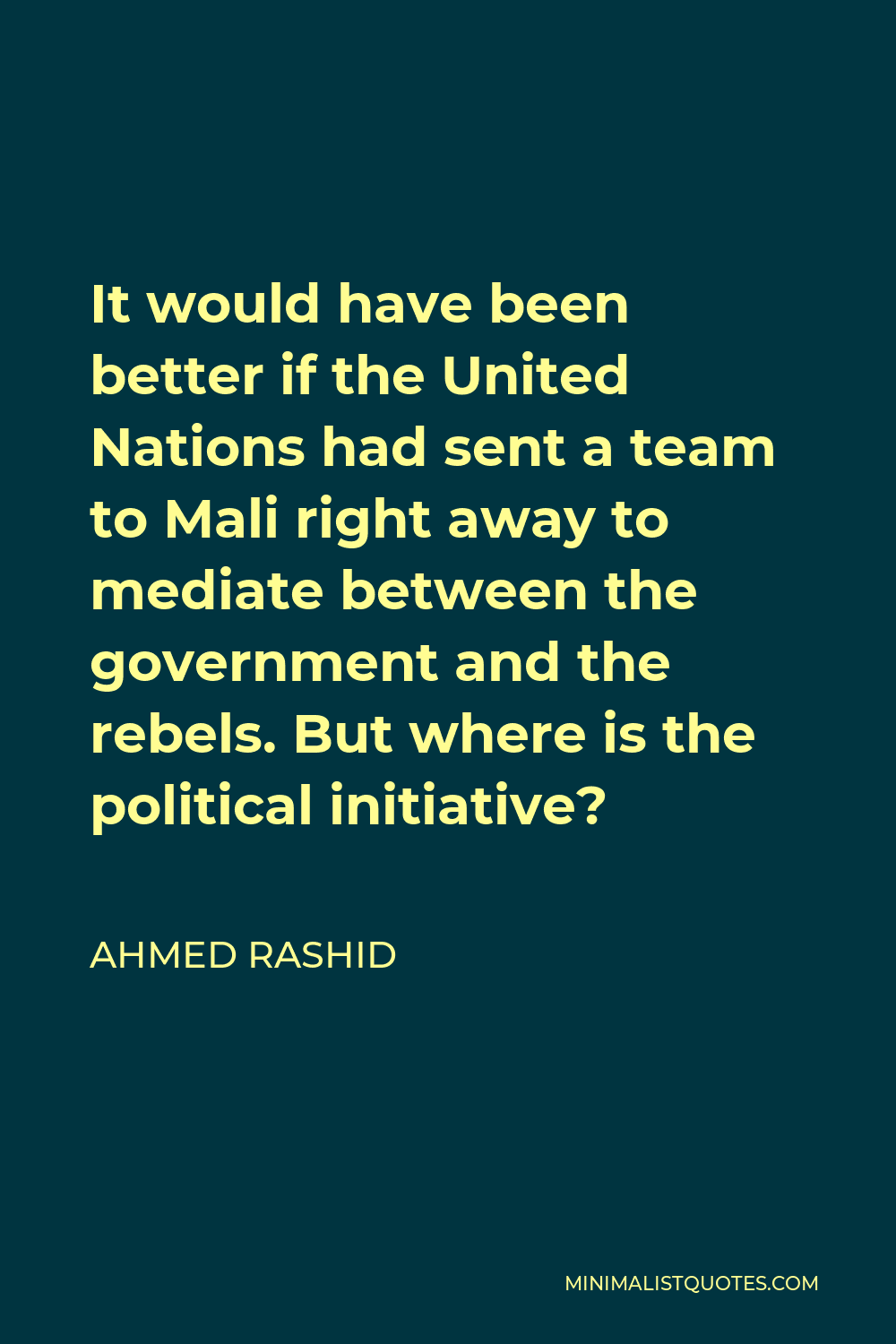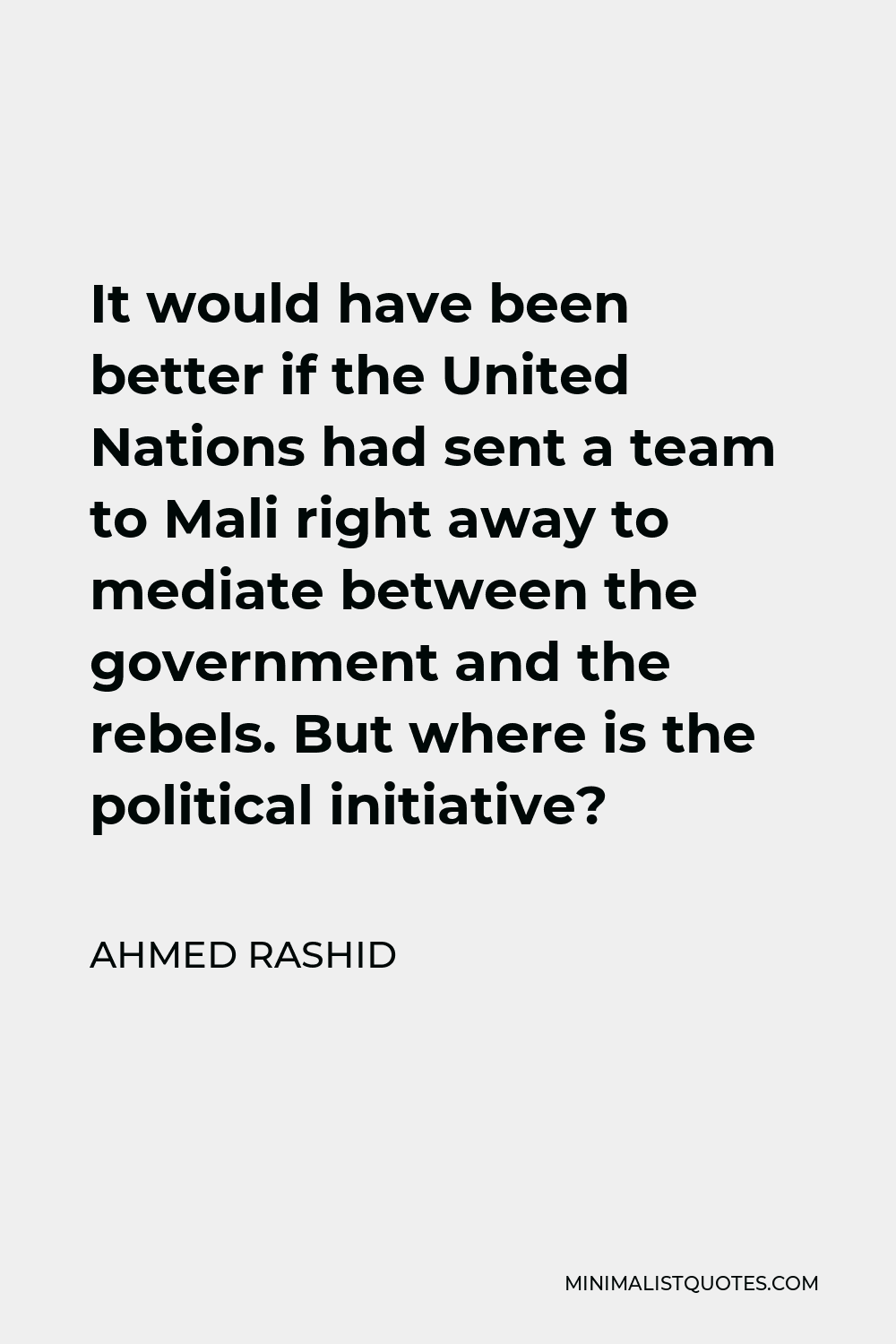Despite all the dire predictions made in 2001, the Afghans have given the international community, its aid workers and soldiers a large window of opportunity to repair the damage done by 25 years of war.
AHMED RASHIDIt would have been better if the United Nations had sent a team to Mali right away to mediate between the government and the rebels. But where is the political initiative?
More Ahmed Rashid Quotes
-





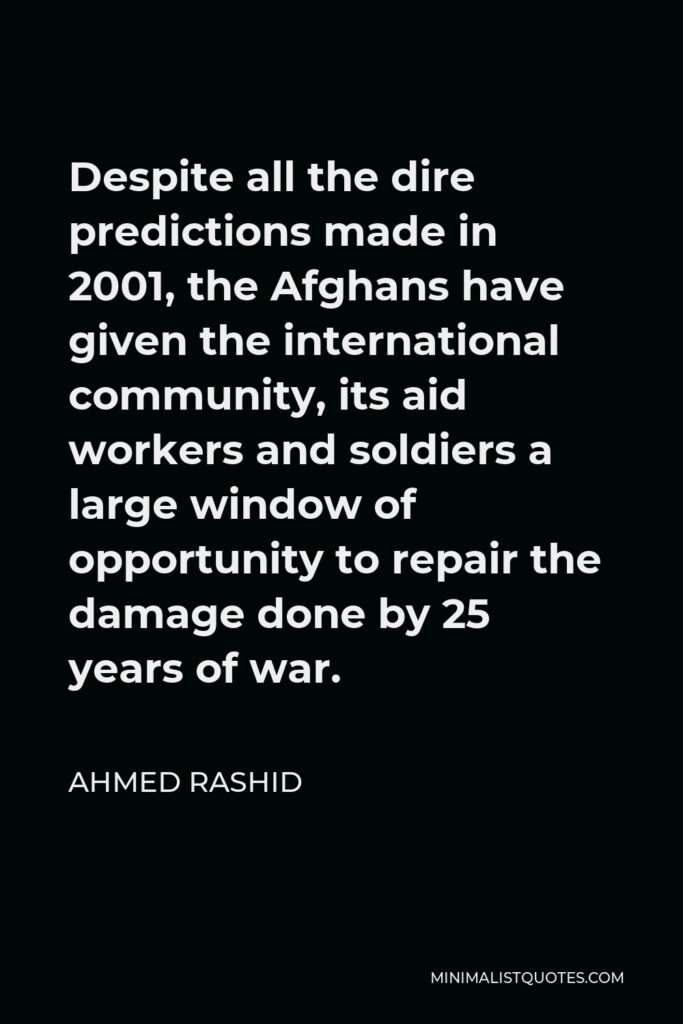

-





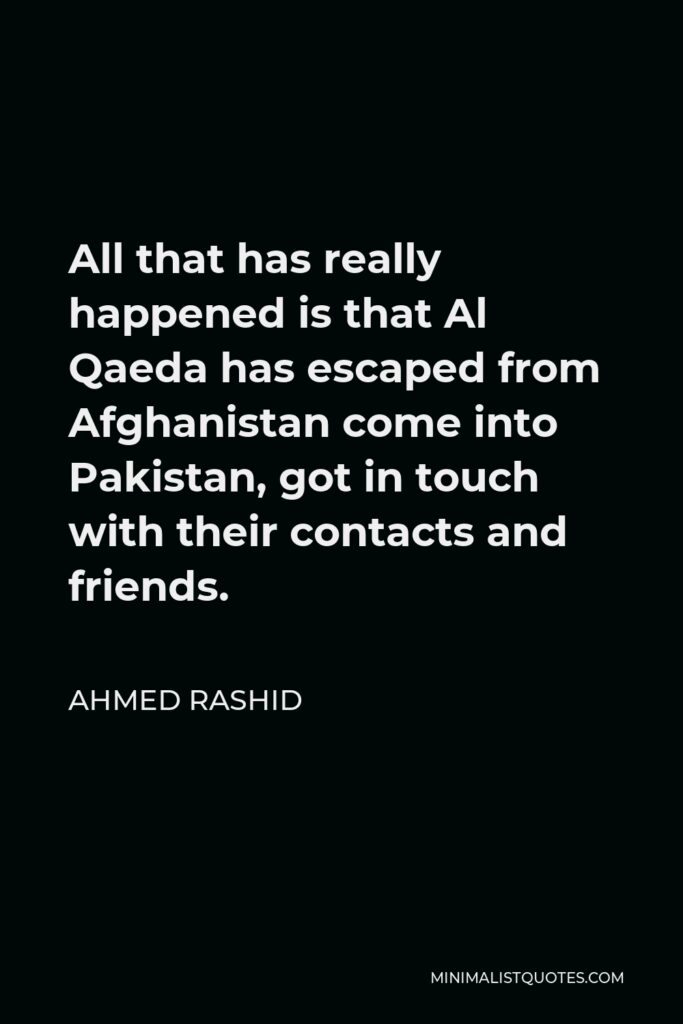

All that has really happened is that Al Qaeda has escaped from Afghanistan come into Pakistan, got in touch with their contacts and friends.
AHMED RASHID -





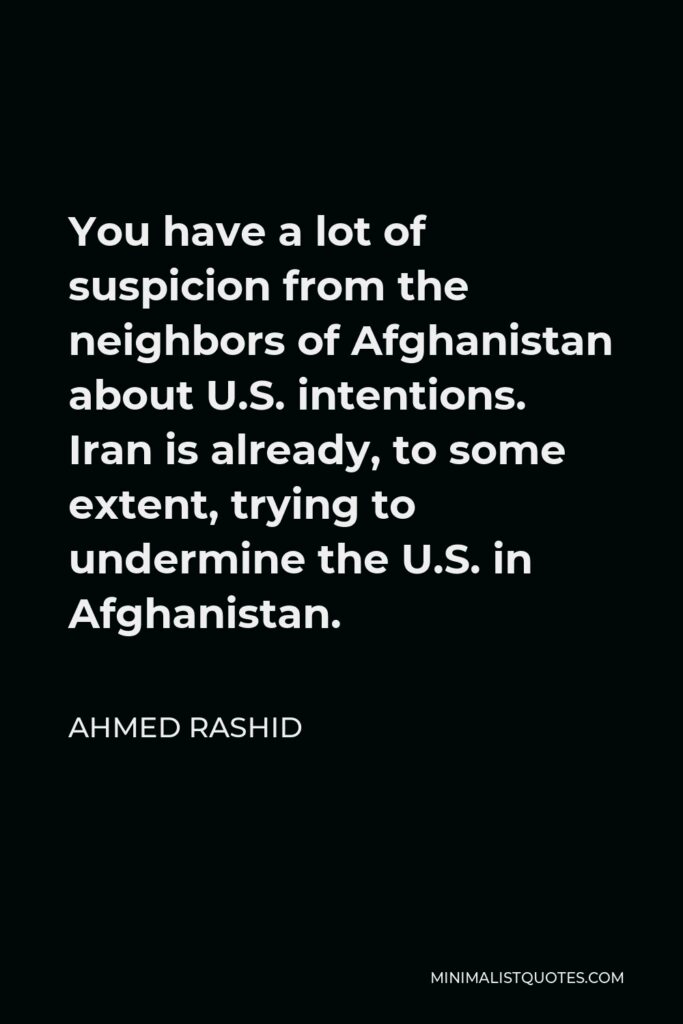

You have a lot of suspicion from the neighbors of Afghanistan about U.S. intentions. Iran is already, to some extent, trying to undermine the U.S. in Afghanistan.
AHMED RASHID -





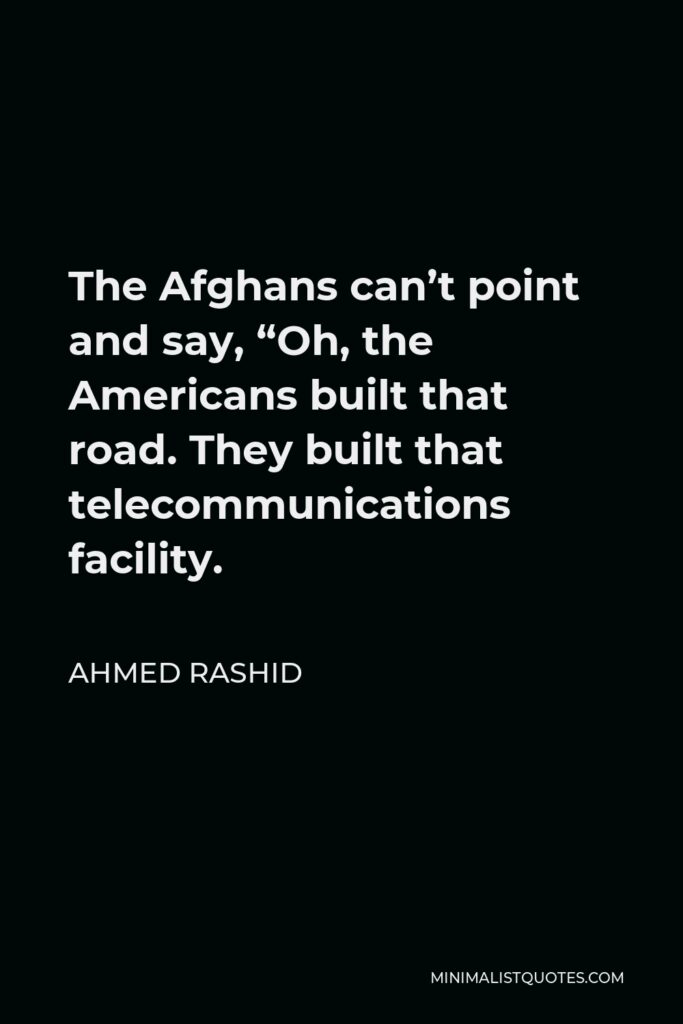

The Afghans can’t point and say, “Oh, the Americans built that road. They built that telecommunications facility.
AHMED RASHID -





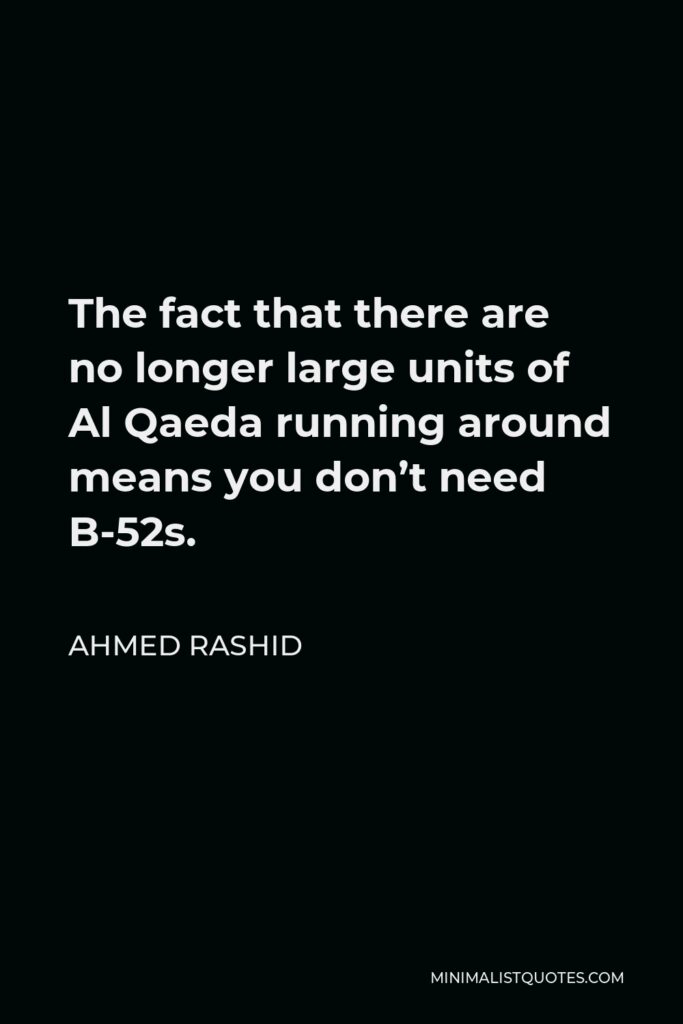

The fact that there are no longer large units of Al Qaeda running around means you don’t need B-52s.
AHMED RASHID -





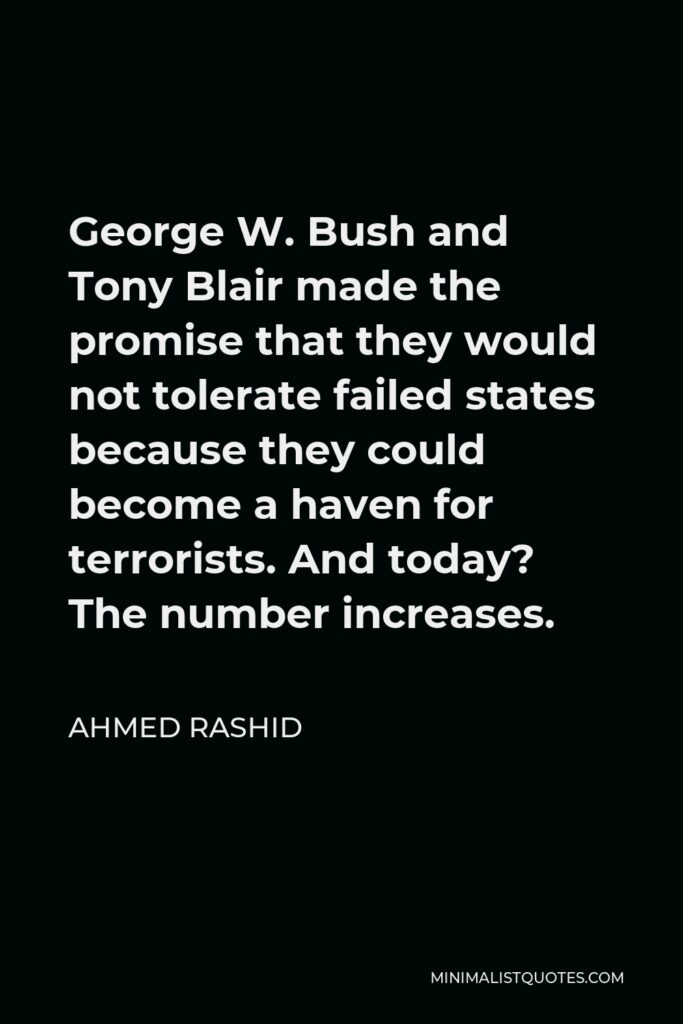

George W. Bush and Tony Blair made the promise that they would not tolerate failed states because they could become a haven for terrorists. And today? The number increases.
AHMED RASHID -





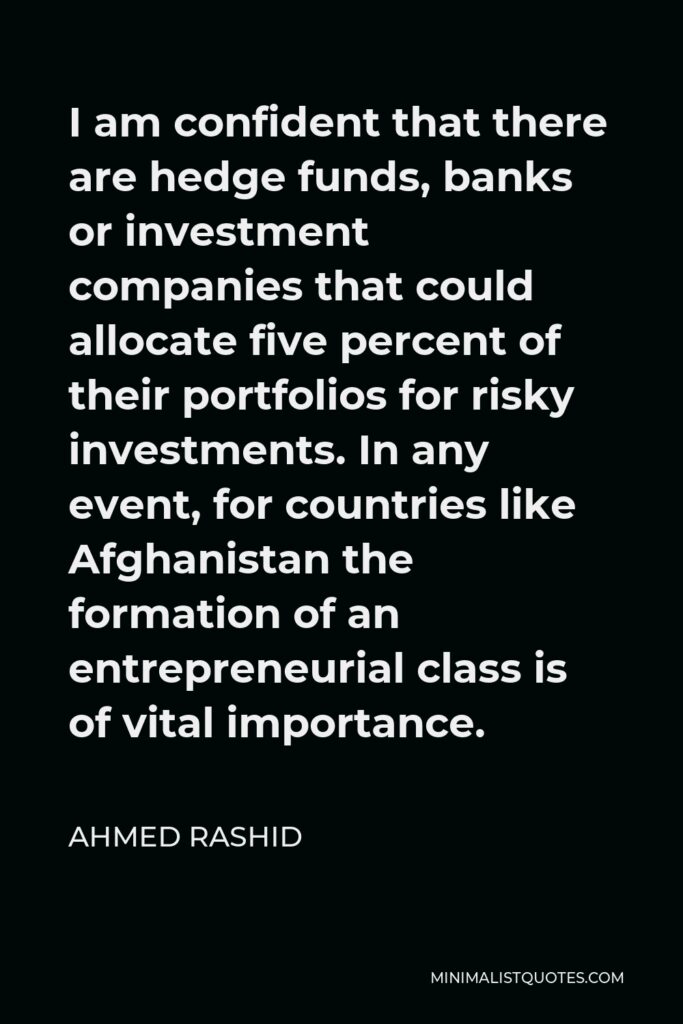

I am confident that there are hedge funds, banks or investment companies that could allocate five percent of their portfolios for risky investments. In any event, for countries like Afghanistan the formation of an entrepreneurial class is of vital importance.
AHMED RASHID -





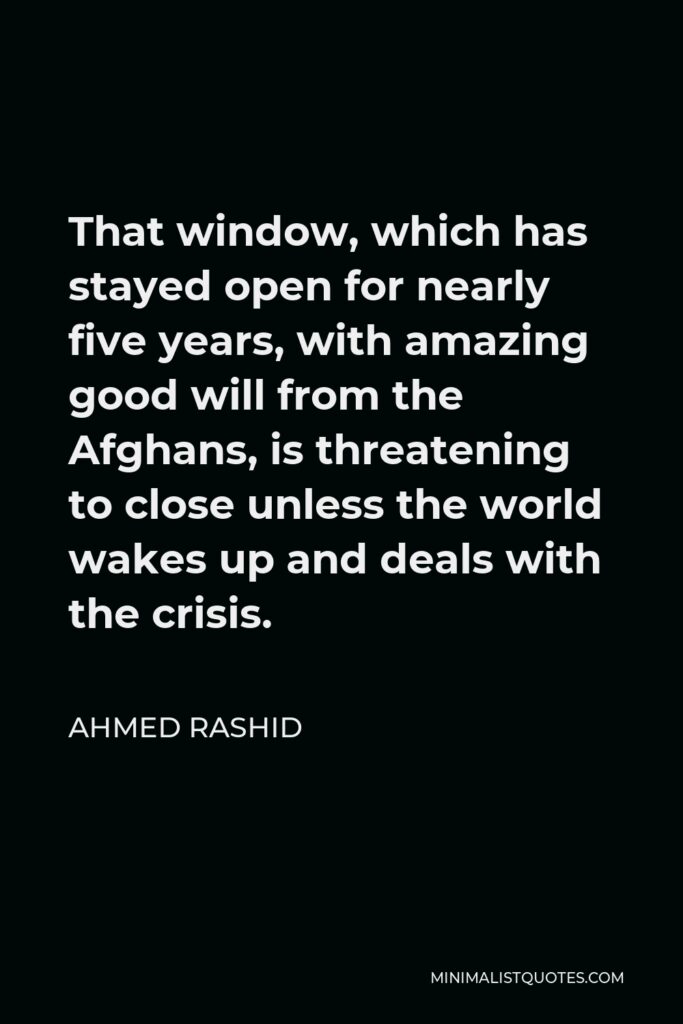

That window, which has stayed open for nearly five years, with amazing good will from the Afghans, is threatening to close unless the world wakes up and deals with the crisis.
AHMED RASHID -





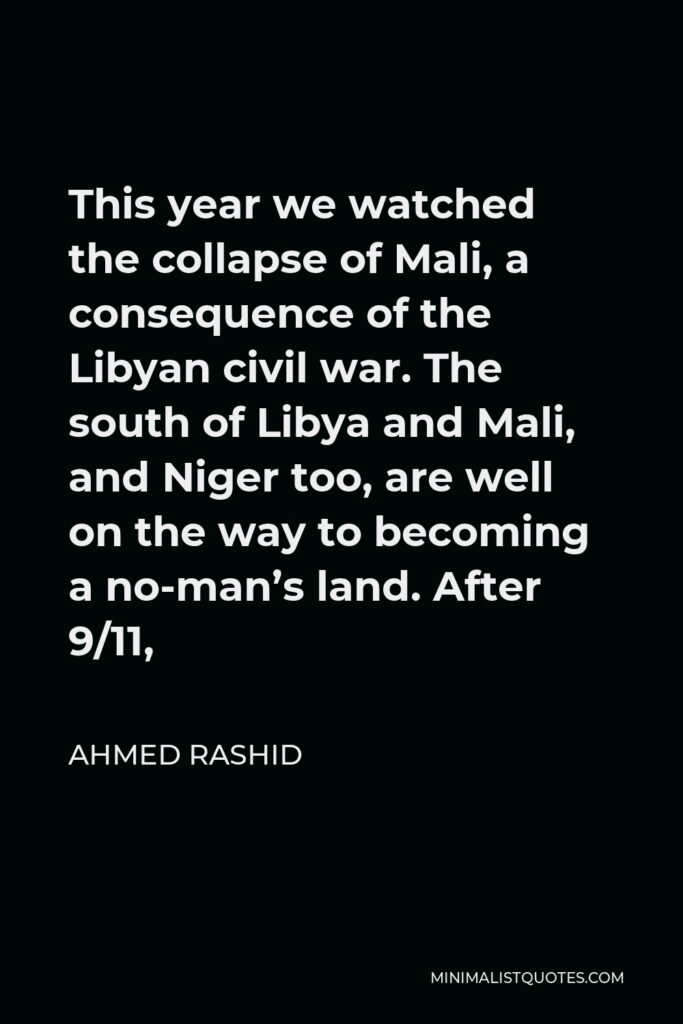

This year we watched the collapse of Mali, a consequence of the Libyan civil war. The south of Libya and Mali, and Niger too, are well on the way to becoming a no-man’s land. After 9/11,
AHMED RASHID -





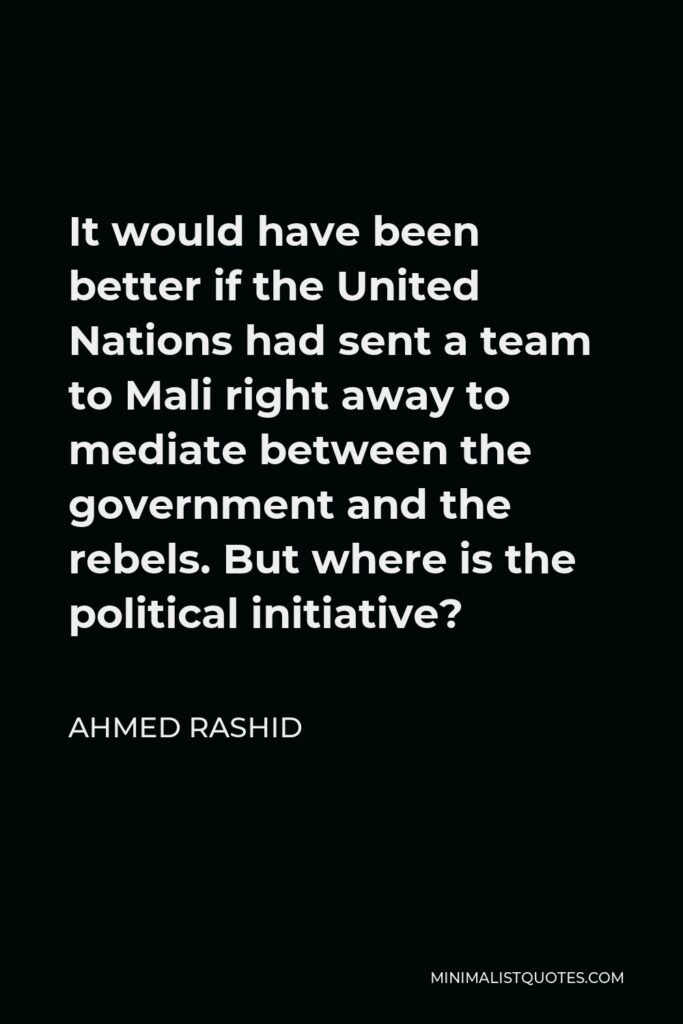

It would have been better if the United Nations had sent a team to Mali right away to mediate between the government and the rebels. But where is the political initiative?
AHMED RASHID -





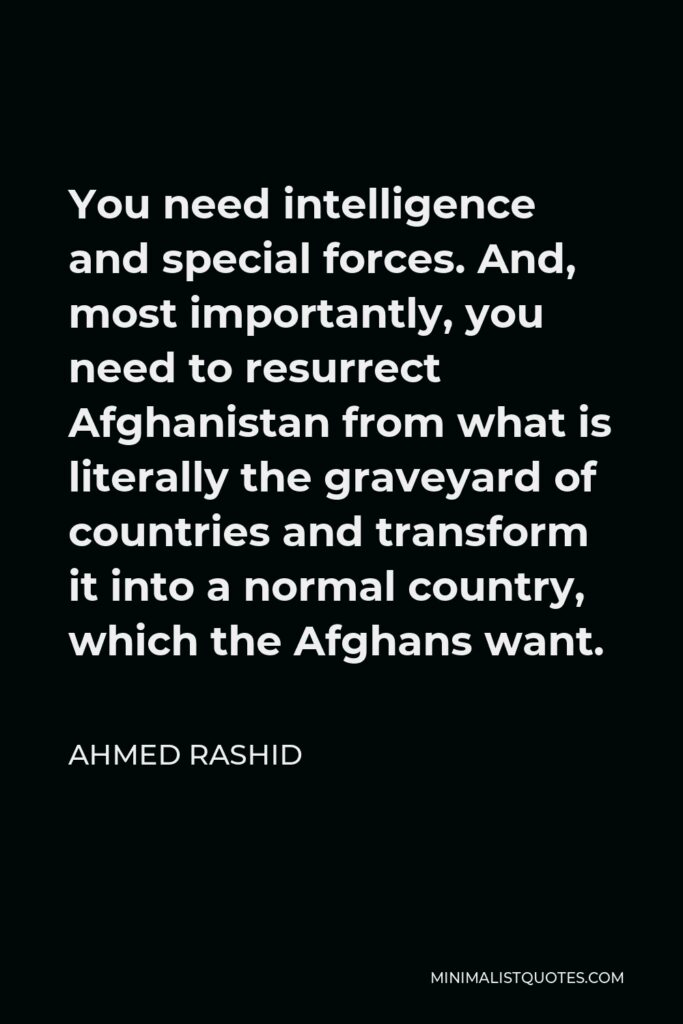

You need intelligence and special forces. And, most importantly, you need to resurrect Afghanistan from what is literally the graveyard of countries and transform it into a normal country, which the Afghans want.
AHMED RASHID -





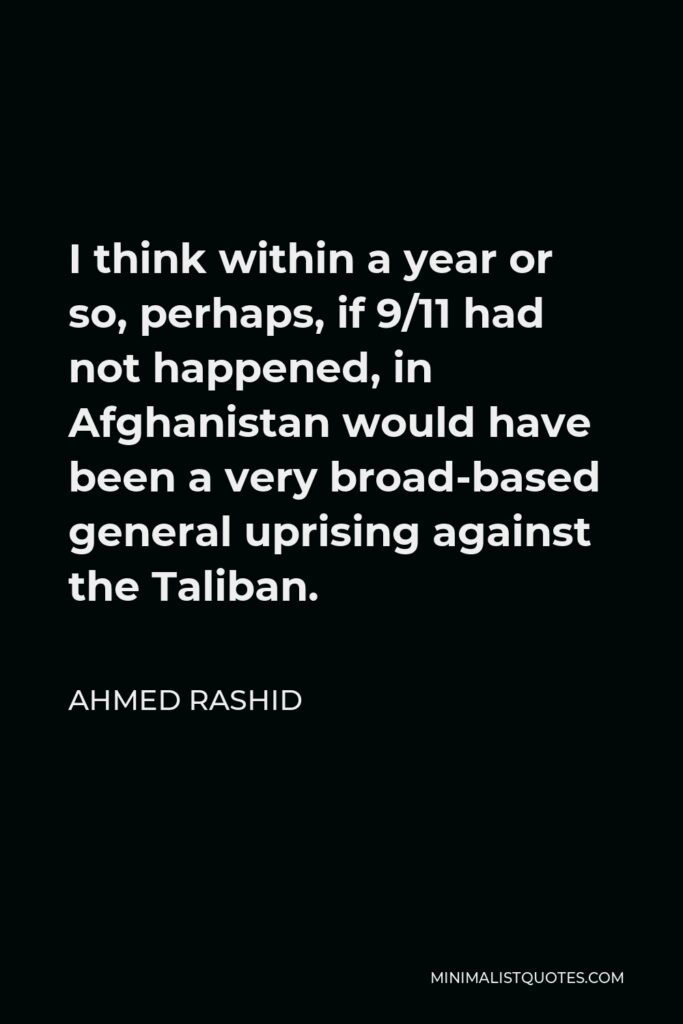

I think within a year or so, perhaps, if 9/11 had not happened, in Afghanistan would have been a very broad-based general uprising against the Taliban.
AHMED RASHID -





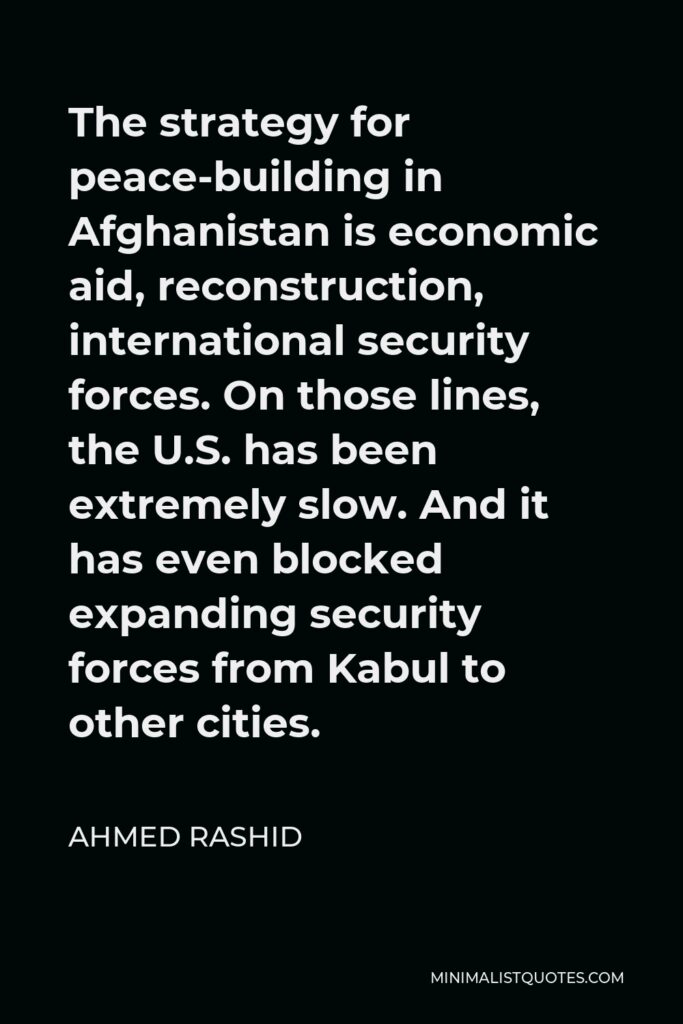

The strategy for peace-building in Afghanistan is economic aid, reconstruction, international security forces. On those lines, the U.S. has been extremely slow. And it has even blocked expanding security forces from Kabul to other cities.
AHMED RASHID -





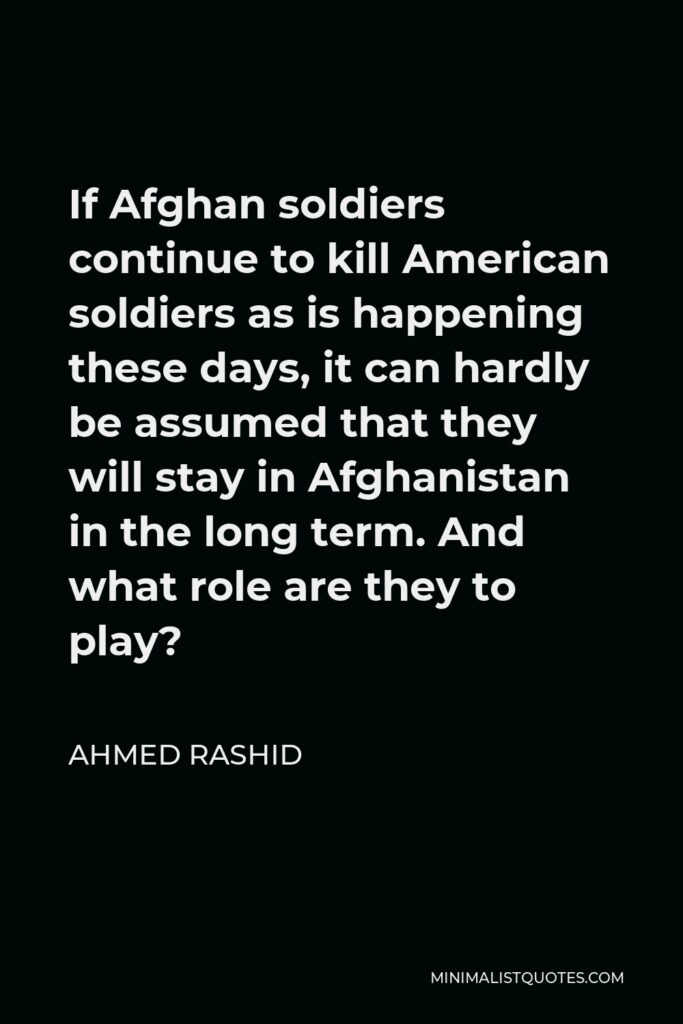

If Afghan soldiers continue to kill American soldiers as is happening these days, it can hardly be assumed that they will stay in Afghanistan in the long term. And what role are they to play?
AHMED RASHID -





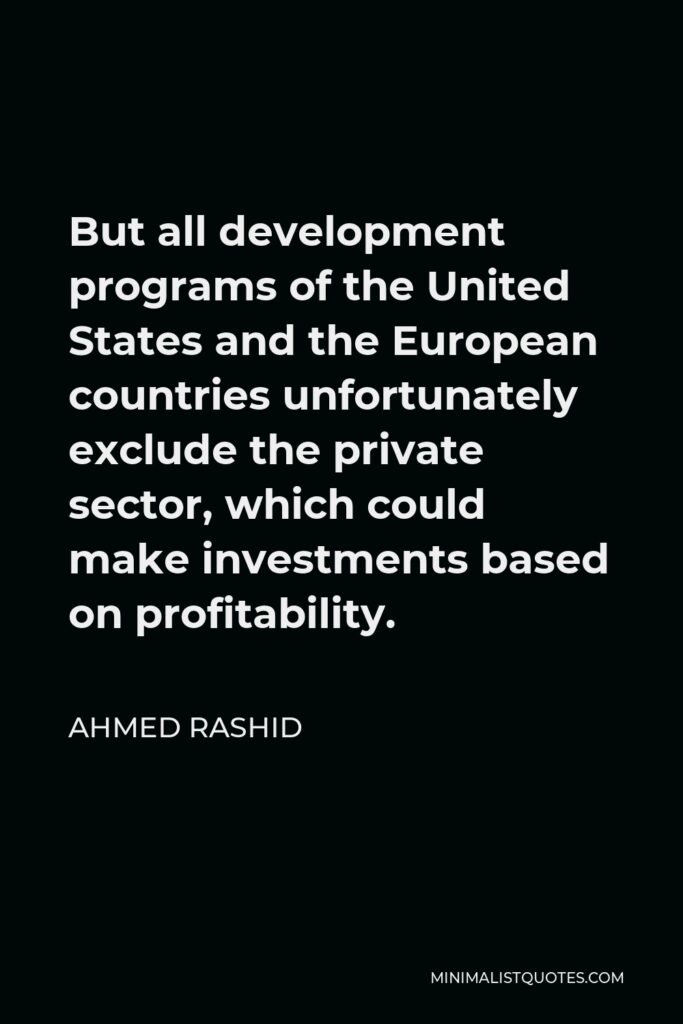

But all development programs of the United States and the European countries unfortunately exclude the private sector, which could make investments based on profitability.
AHMED RASHID -





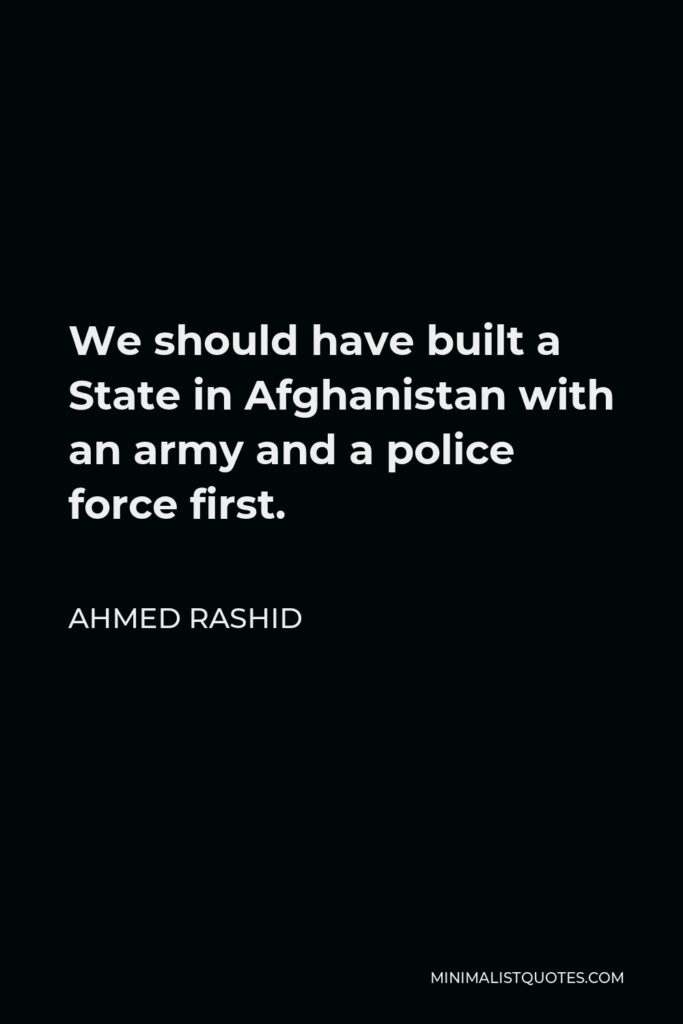

We should have built a State in Afghanistan with an army and a police force first.
AHMED RASHID
